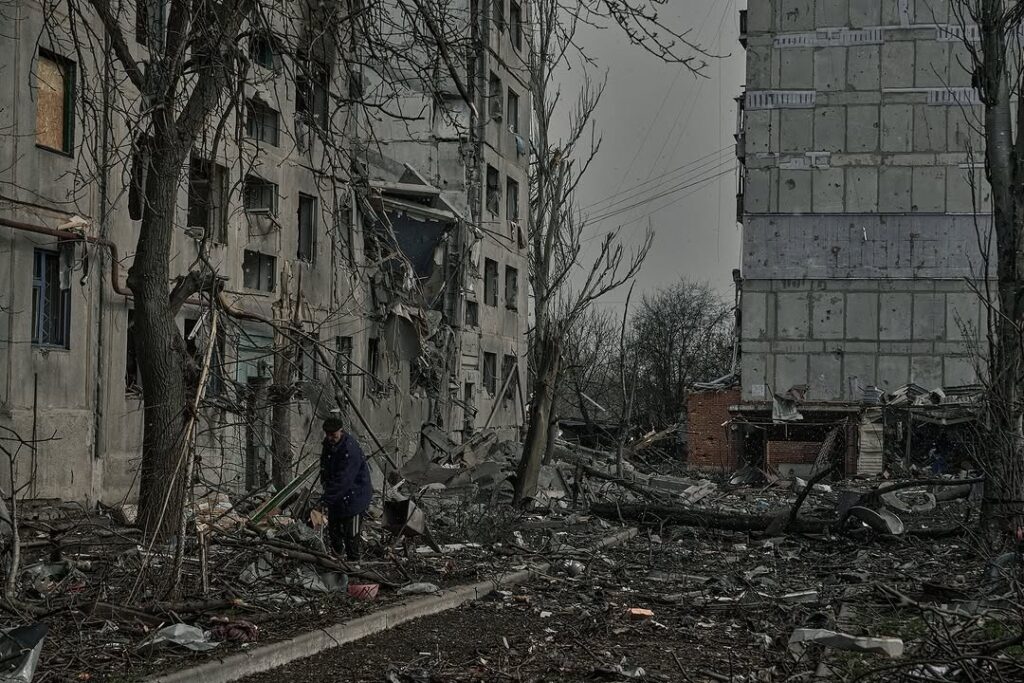The latest update from the Ukrainian Deep State analysis group is an “emergency call,” according to one mapper. Russian troops may be close to securing a lodgement on the western side of the Kazennyi Torets River near the village of Razyne, just east of the fortress city of Pokrovsk in eastern Ukraine’s Donetsk Oblast.
If significant Russian forces can cross the river and march west from Razyne, they could put pressure on the supply lines into Pokrovsk, the southernmost chain in a belt of fortified cities stretching north toward the border with Russia.
The Ukrainian troops in and around Pokrovsk—some or all of no fewer than 10 brigades—would surely evacuate the ruined city rather than risk starvation and encirclement. But that would hand Russia its biggest victory in months, albeit an extremely costly one.

Russian field armies have been fighting their way toward Pokrovsk ever since the fall of Avdiivka, 40 km to the west, back in the spring of 2024. Tens of thousands of Russians have been killed or wounded, but strong recruitment in Russia means fresh troops keep coming.
Pokrovsk is a hard target, however—and stiff Ukrainian defenses halted the Russian advance directly on the city as long ago as February. Instead of directly attacking Pokrovsk, the Russians pivoted. Attacking east and west of the city, they’ve slowly closed a territorial pincer around it. Today, Russian troops are just a few miles east of the main north-south road into Pokrovsk—and also a few miles south of the main west-east road into the city.

Now the Russian Center Operational Grouping is at a literal and proverbial crossroads. The grouping’s commanders face a choice. They can attempt to surround Pokrovsk from the northeast—or from the west.
Neither is easy, but both are possible. “Envelopment of Pokrovsk from the northeast would require the enemy to advance significantly toward Rodynske”—4 km to the north—“seize it, and establish a strong defensive area there to enable attacks on Pokrovsk,” the Ukrainian Center for Defense Strategies noted.
“Other possible courses of action for the enemy could include an advance north of Udachne or Kotlyne to sever the [west-east] M30 highway,” CDS added.
Attacking from the east
It’s in the east where the Russians are making the most progress—and where they may choose to concentrate forces for further gains. The main obstacle, besides the Ukrainian 17th Heavy Mechanized Brigade, 38th Marine Brigade and 142nd Mechanized Brigade, is the narrow Kazennyi Torets River. “In order to advance west of Razyne, Russian forces would need to force the Kazennyi Torets River at several locations, which could present an obstacle to their advance,” CDS explained.

Deep State’s update indicates the Russians may soon cross the river, if they haven’t already done so. Their success “directly depends on the combat capability of the involved units,” CDS stated. Those units include the 39th Separate Motorized Rifle Brigade, the 150th Motorized Rifle Division and the 110th Separate Motorized Rifle Brigade.
The 39th Separate Motorized Rifle Brigade has led several of the most successful Russian assaults along this axis since the fall of Avdiivka.

For Ukraine, the consequences of a Russian march west of Razyne could be serious as Russia’s wider war on the country grinds into its 41st month and the Kremlin continues to enjoy a huge manpower advantage. “If the command of Ukrainian defense forces fail to stabilize the situation on this direction in the near future, then Ukraine’s military-political leadership should prepare for the opening of the Pavlohrad operational direction,” according to CDS.
The city of Pavlohrad lies 60 km west of Pokrovsk. It’s safe right now, but that could change fast if and when Pokrovsk falls.





